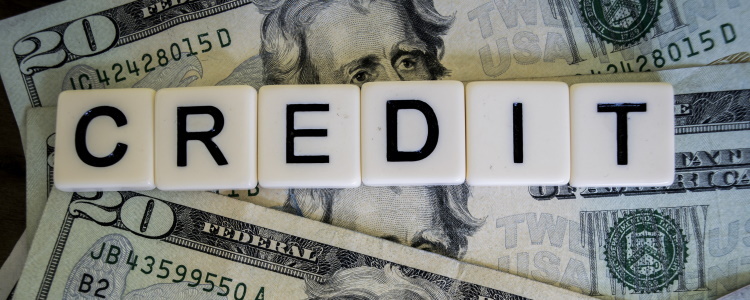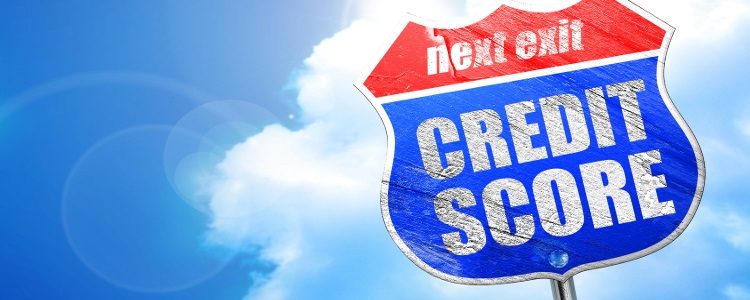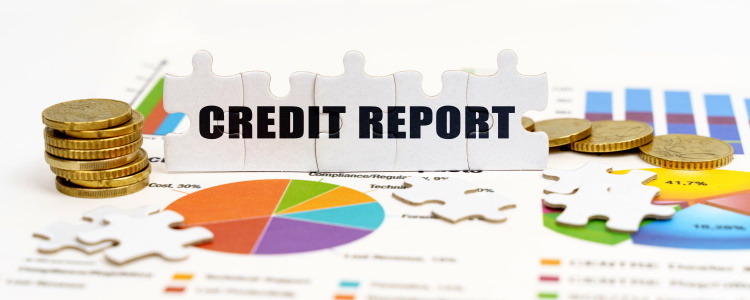There are many things that impact a credit score, but there are a few small things you can do to build your credit up – even if you’re a beginner! We’re exploring what makes up your credit score, and some easy tips in the world of credit.
What Is Credit Anyway?
 When someone says “credit,” it could mean a number of things. In the context of your credit score, it means the three-digit number that’s generated based on the information in your credit reports.
When someone says “credit,” it could mean a number of things. In the context of your credit score, it means the three-digit number that’s generated based on the information in your credit reports.
Your credit score serves as a quick summary of your history of repaying borrowed money (which is also called credit). Lenders look up your credit score as a way to evaluate your ability to take on new credit (a new loan or line of credit).
Quick reference guide:
- Credit score – Three-digit number that ranges from 300 to 850; generated based on the information in your credit reports.
- Credit report – Detailed report that has your personal information as well as information about your current and past credit accounts.
- Credit – Borrowed money that you use to pay for goods and services.
What’s in My Credit Reports?
There are a lot of things in a credit report. It’s a detailed report of your credit accounts, but it also contains personal information like your current and previous addresses, work history, and Social Security number.
Most people have multiple credit reports, usually one from each of the three major credit reporting agencies: Experian, TransUnion, and Equifax. Each may contain different information, so they all could generate different credit scores.
If you want to see what’s actually in your credit reports, visit www.annualcreditreport.com. After filling out some basic info, you can view your credit reports at no cost, and your credit score doesn't drop by reviewing your own reports.
Additionally, due to COVID-19, you can request your credit reports for free once a week, until April 2021. Pre-pandemic, you could only get a free credit report from each agency once every 12 months. Since you can keep track of it in nearly live time, now is the time to monitor your credit reports.
What’s in My Credit Score?
While there are a few credit scoring models out there, the most commonly used one is the FICO scoring model. It’s been around since the ‘80s, so most lenders reference it.
The FICO credit scoring model contains five main categories:
- Payment history (35%) – How well you are handling and have handled repaying credit.
- Amounts owed (30%) – The total amount of credit you’re borrowing.
- Length of credit history (15%) – How long you’ve had credit.
- Credit mix (10%) – How many different kinds of credit you have.
- New credit (10%) – Keeps track of the times you’ve applied for new credit.
Each of these categories is important, but payment history is the big one. Since your credit score is meant to serve as a way to let lenders see if you’re a good borrower, lenders are most concerned with whether or not you pay your bills on time.
Quick Tips for Credit Building
One of the best things you do to maintain a good credit score is simply paying all your bills and loan payments on time. Just because a bill or loan payment doesn’t show your on-time payments doesn’t mean that your late payments won’t pop up (and late payments can stick around for up to seven years). If you want a bill to appear on your credit reports, like rent or a utility bill, to contribute to your payment history, check out our trusted partner for their credit boosting services.
Aside from your payment history, here are some quick tips to help you build up your credit that consider the other four factors of your credit score:
- Don’t rely on credit too much if you can help it. Your amounts owed keeps track of how much you’re borrowing in total. Having a lot of loans with large balances or high credit card balances lowers your credit score, and lenders could think you’re overextended.
- Keep your credit card balances below 30%, since this affects your credit utilization ratio, which compares how much you’re allowed to borrow to how much you owe. Maxed out credit cards lower your credit score, and also can tell lenders that you may be relying on credit too much.
- Don’t close old, unused credit cards. Closing a line of credit ends the “age” of an account, and lowers the total amount you’re allowed to borrow, which also plays into your credit utilization – and it could also hurt your credit mix!
- Shop for new credit within two weeks. Hard inquiries can lower your credit score, but if you apply for the same type of credit within two weeks, the credit scoring models understand that you’re looking for the best rates. In this scenario, only one hard inquiry is reflected instead of multiple, so plan ahead before you apply!
- Don’t apply for new credit unless you need it. Attempting to open up multiple lines of credit in a short time, in an attempt to help improve your credit mix, can actually lower your score. Again, this tells lenders that you rely on too much credit, and that it may be an indicator of a borrower that’s financially strained.
Start Your Credit Off With a Car Loan
Many borrowers start their credit history off with a car loan or a credit card. But, some credit cards can be harder to apply for than others, and a lot of auto lenders can be hesitant to approve a borrower without a long-standing credit history.
Enter subprime lenders: these lenders are signed up to work with dealerships that have special finance departments. They assist borrowers in all types of credit situations, such as bad credit and no credit. If you’re a new borrower, you’re likely to find that your credit score is somewhere in the mid-to-low range, aka subprime. If you’re ready to take on some credit and get into your next vehicle, get with us at Auto Credit Express.
We have a nationwide network of dealers, and we can look for a dealership in your area that has the lending options you need. Fill out our free car loan request form to get started right now.
















